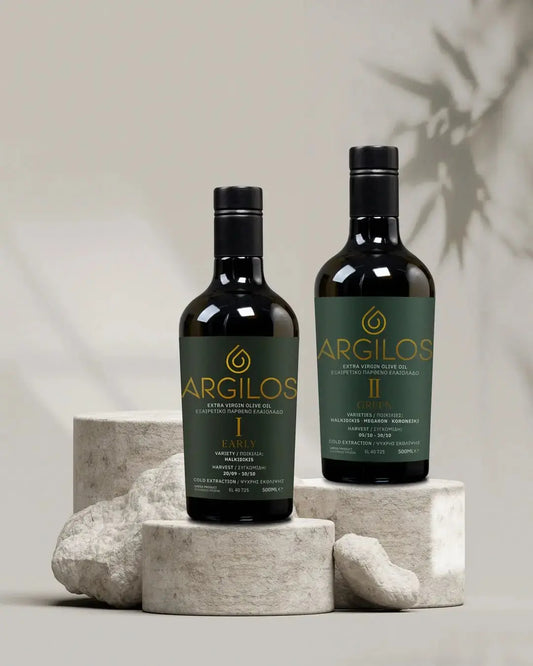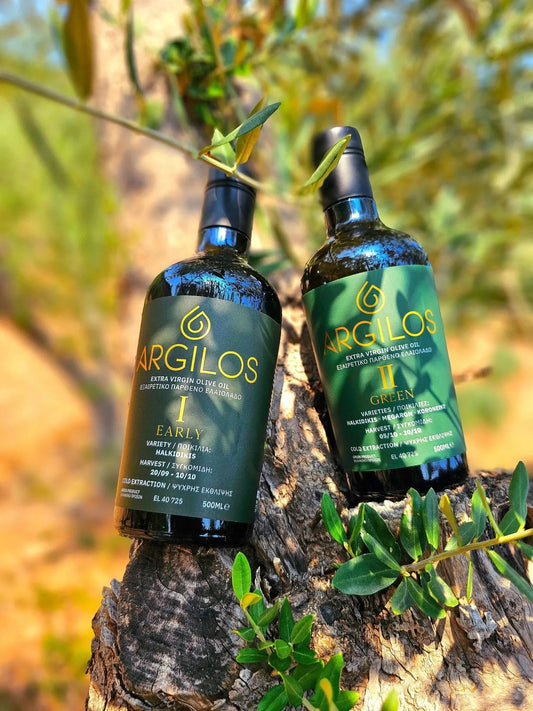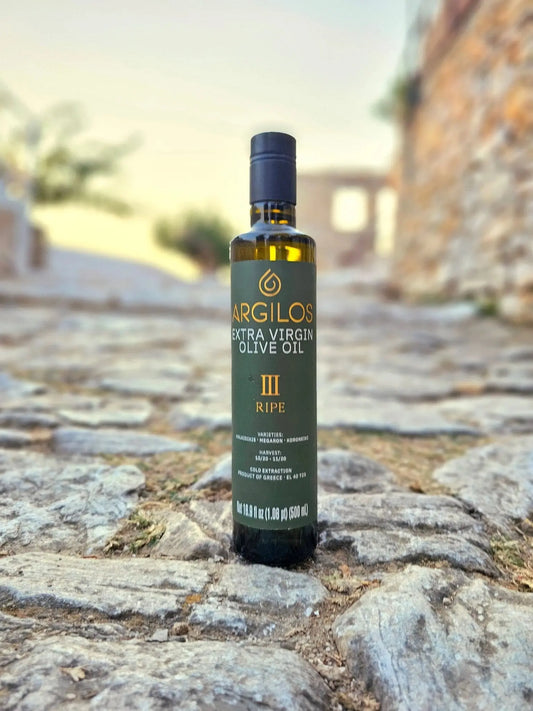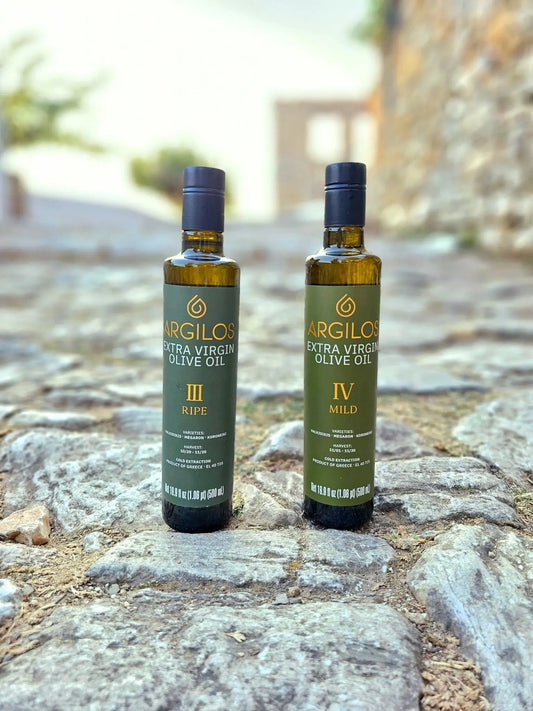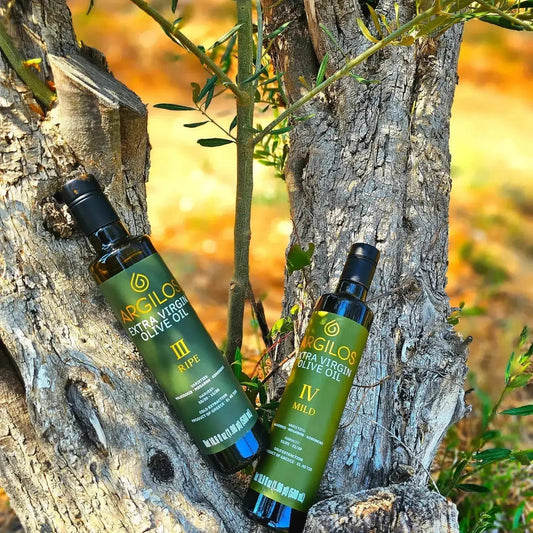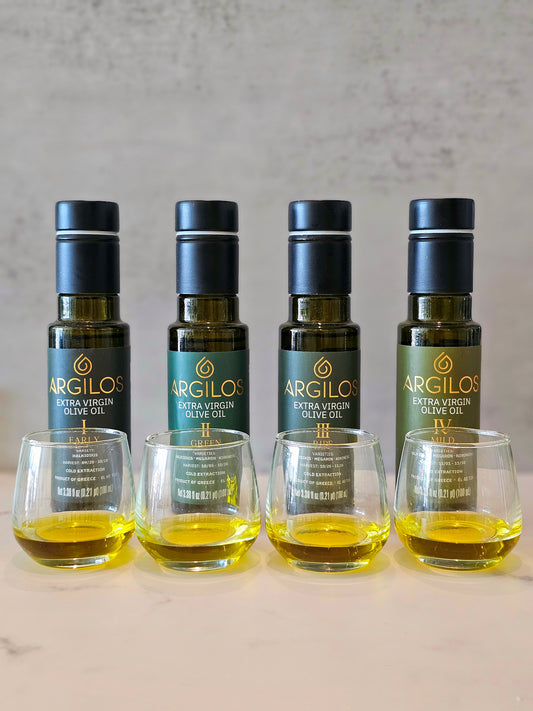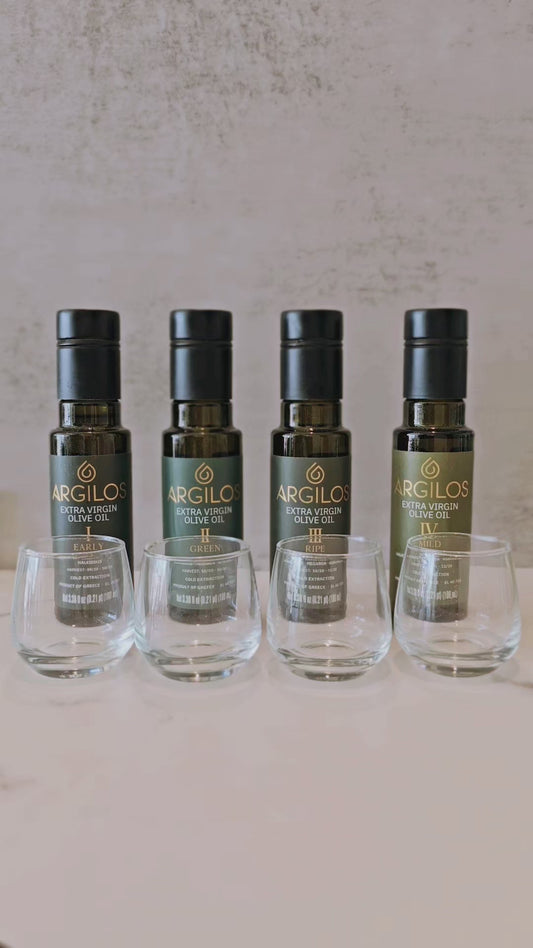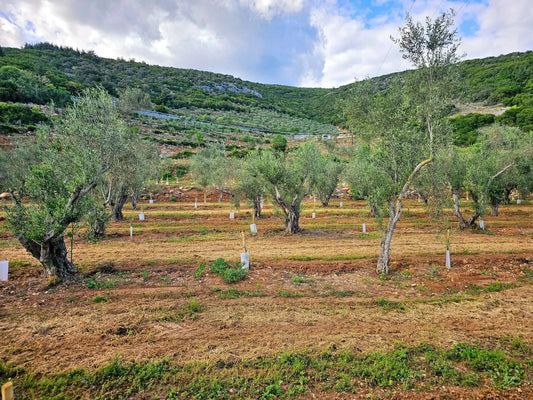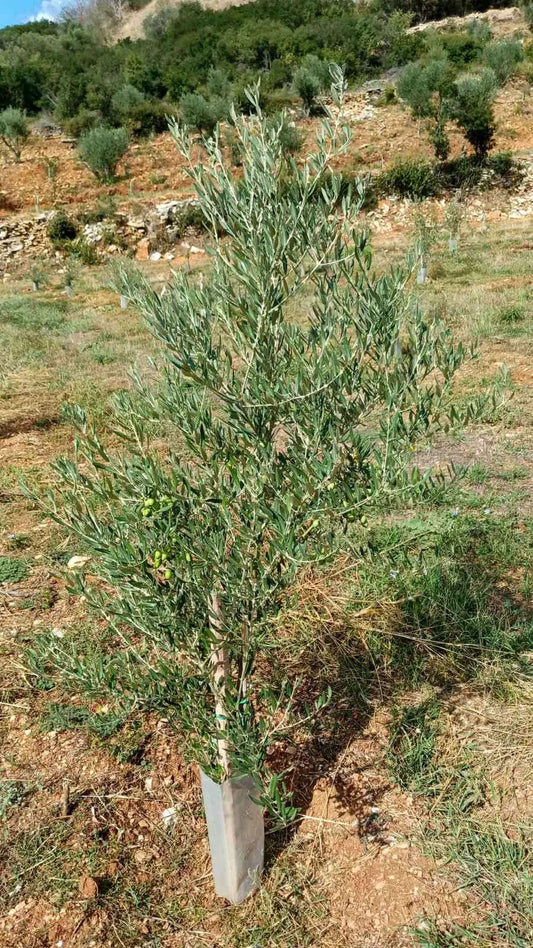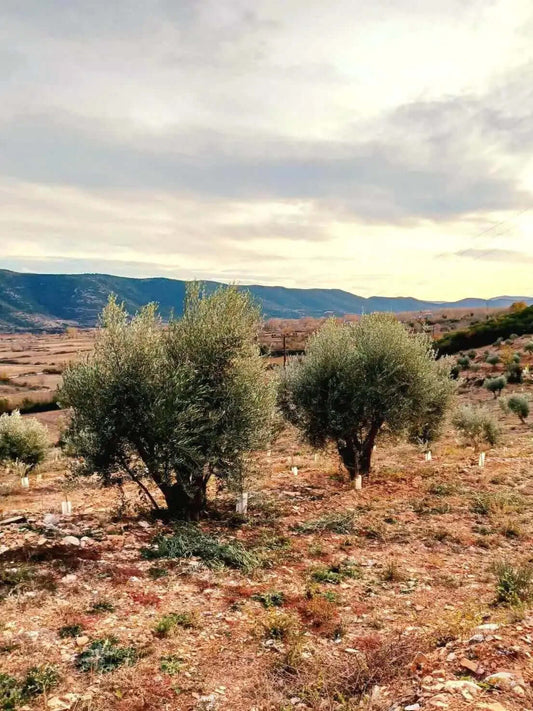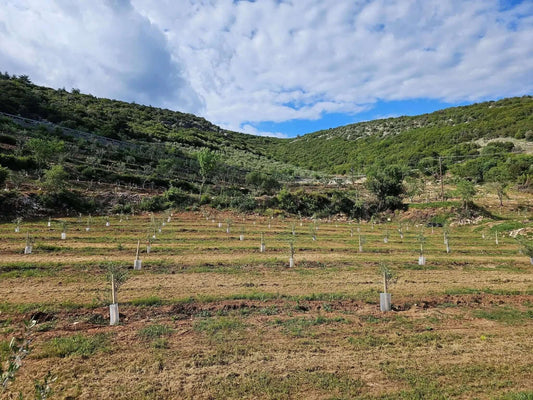How Climate Change Is Affecting Olive Oil Harvests & What We Can Do
Share
Climate change is shaking up the olive oil industry, and if you love extra virgin olive oil as much as we do at Nostos Goods, you’ll want to know why. Unpredictable weather, rising temperatures, and extreme conditions are making it harder to produce high-quality olive oil. But don’t worry—it’s not all bad news! Let’s dive into how climate change is impacting olive oil production and what we (farmers, brands, and consumers) can do about it.
What’s Happening to Olive Oil Production?
1. Heatwaves & Rising Temperatures
Olive trees love warm climates, but extreme heat is a different story. When temperatures soar above normal, trees can struggle to flower and bear fruit. This means fewer olives and, ultimately, less olive oil. Recent heatwaves in Spain, Greece, and Italy have led to some of the lowest harvests in years. Additionally, high temperatures can cause premature ripening, altering the balance of flavors and reducing the oil’s stability. Some farmers are even seeing a decline in polyphenol levels, which are responsible for olive oil’s health benefits.
2. Droughts Are Becoming More Common
Water is life, especially for olive trees. With unpredictable rainfall and prolonged droughts, trees are stressed, and production drops. Some olive-growing regions are now facing water shortages, making it even harder to maintain healthy groves. Drought conditions not only reduce the size and number of olives but also lower oil yields per fruit, making production less efficient. Olive trees are known for their resilience, but with back-to-back years of extreme drought, even the hardiest trees are struggling. In some areas, farmers are being forced to abandon olive groves due to insufficient water resources.
3. Pests & Diseases Are Spreading Faster
Rising temperatures create the perfect conditions for pests like the olive fruit fly. These tiny troublemakers destroy olives before they can be harvested, leading to massive crop losses. The olive fruit fly, for example, thrives in warmer climates, and its expanding range means it’s becoming an issue in regions that previously weren’t affected. Similarly, diseases like Xylella fastidiosa are spreading, putting entire olive groves at risk. Xylella fastidiosa is a bacterial disease that causes trees to wither and die, and once infected, there is no cure. The economic impact of these infestations is severe, leading to higher costs for pest management and potential shortages of high-quality olive oil.
4. Harvests Are Happening Earlier
With warmer climates, olives are ripening earlier than usual. While this might sound like a good thing, it can affect the oil’s flavor and polyphenol content (those amazing antioxidants that make olive oil so healthy). Earlier harvests can lead to changes in taste and quality. The traditional harvest season, which typically starts in October or November, is now beginning in September in some regions. This shift means farmers must adjust their harvesting techniques, and in some cases, they are losing the ideal harvesting window to produce the best extra virgin olive oil. When olives ripen too quickly, they may not develop the optimal balance of acidity and aroma, leading to a less complex and less stable oil.
What Can We Do About It?
1. Smarter, More Sustainable Farming
Farmers are adapting by using techniques like regenerative farming, organic composting, and planting cover crops to retain soil moisture. These methods help trees become more resilient to extreme weather. Regenerative agriculture not only improves soil health but also enhances the ability of olive groves to store carbon, making it a key strategy for fighting climate change. Additionally, some farmers are experimenting with mixed cropping systems—growing olive trees alongside other plants that provide natural shade and moisture retention.
2. Investing in Drought-Resistant Olive Trees
Scientists are working on developing olive tree varieties that can withstand hotter and drier conditions. Some farmers are already planting these hardier varieties to future-proof their groves. Traditional olive cultivars that have historically thrived in arid regions are being reintroduced in new areas, and genetic research is helping identify strains that are naturally more drought-tolerant. This shift towards more resilient olive varieties will be crucial in maintaining stable olive oil production despite climate uncertainty.
3. Better Water Management
Innovative irrigation techniques, like drip irrigation, help farmers use water efficiently. Collecting and storing rainwater is another sustainable solution that helps olive trees thrive even in dry conditions. Drip irrigation systems deliver water directly to the tree roots, reducing waste and improving absorption. Some farms are also investing in desalination projects or advanced soil moisture monitoring systems that help optimize watering schedules. These methods not only conserve water but also ensure that olive trees receive the precise amount they need to produce high-quality oil.
4. Encouraging Natural Pest Control
Rather than relying on chemicals, many olive farmers are promoting biodiversity by introducing natural predators that keep pests in check. Companion planting and reducing pesticide use help create a healthier ecosystem. For example, some farmers plant lavender or other aromatic plants near olive groves to repel harmful insects. The introduction of natural enemies, such as parasitic wasps that target olive fruit flies, has also proven effective in reducing pest populations without harming the environment.
5. Supporting Sustainable Olive Oil Brands
As consumers, we can make a difference by choosing olive oil brands that prioritize sustainable practices. Look for organic, regenerative, and eco-friendly certifications when shopping for EVOO. Brands that prioritize ethical sourcing and environmentally friendly production methods are helping to ensure the longevity of olive farming. By purchasing from responsible producers, consumers can encourage more sustainable practices across the industry and help farmers who are investing in climate-friendly techniques.
The Future of Olive Oil
While climate change is a big challenge, the olive oil industry is evolving. With better farming techniques, scientific innovation, and conscious consumer choices, we can help secure the future of high-quality olive oil.
At Nostos Goods, we’re committed to producing extra virgin olive oil with sustainability in mind. From the fertile lands of Mount Pangaion to your kitchen, we’re dedicated to bringing you the best while respecting nature. Let’s protect the future of olive oil—one bottle at a time!

